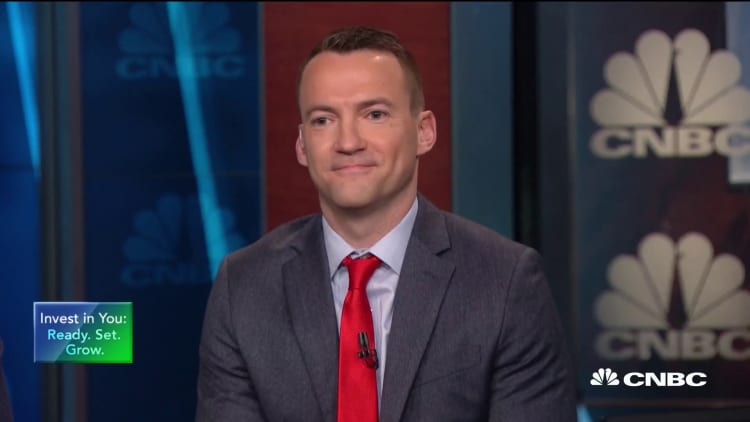If you've seen research reports or promotions touting opportunities to invest with companies that are working to cure coronavirus, think twice before buying stock shares.
That's according to U.S. regulators, including the Securities and Exchange Commission, the Federal Trade Commission and the Florida Department of Agriculture and Consumer Services, which all released investor alerts in the past week warning Americans about an uptick in investment scams attempting to take advantage of the coronavirus outbreak.
"Fraudsters often use the latest news developments to lure investors into scams," the SEC's office of investor education and advocacy said in a Feb. 4 email. The coronavirus has particularly dominated the news cycle in past weeks. As of Feb. 10, China's National Health Commission reported the coronavirus has killed over 1,000 people and infected more than 42,600 in China.
The SEC released its warning after it became aware of "a number of Internet promotions, including on social media, claiming that the products or services of publicly traded companies can prevent, detect or cure coronavirus, and that the stock of these companies will dramatically increase in value as a result."
But as the World Health Organization noted on Feb. 5, there are "no known effective therapeutics" available at this time to fight coronavirus, despite news reports in recent days touting breakthroughs. Chinese President Xi Jinping has vowed to crack down on misinformation about coronavirus prevention and treatment.
"We know scammers follow the headlines and it would not be surprising to see fraudulent pitches related to medical or bio-technology, or 'sure cures' related to the coronavirus situation," says Bob Webster, a spokesman for the North American Securities Administrators Association, an investor protection organization comprised of state regulators.
How the coronavirus scams work
Many times, these types of coronavirus investment scams take the form of so-called "research reports" that include estimates of how high the future stock price could jump, according to the SEC. While fraudsters may use any type of investment in these kinds of schemes, microcap stocks, also commonly referred to as penny stocks, are "particularly vulnerable" to this type of scam, the agency says.
Penny stocks are usually shares of small companies that have market capitalizations of around $250 to $300 million, sometimes far smaller. Because these are small companies, public information can be limited, making it easier for scammers to give investors false information, the SEC says.

The most common scam in these cases is called a "pump and dump" scheme. Fraudsters boost the company's stock price by sharing positive, but fake, information. In this case, they may claim the company is helping detect coronavirus cases or developing a new cure to prevent or eliminate the infection. Scammers buy up the penny stocks cheap before spreading the rumors that drive the stock price higher and higher and encouraging other investors to get in on the supposed windfall. When the stock hits a high point, the scammers dump their shares, leaving unsuspecting investors holding the bag.
"Typically, after the promoters profit from their sales, the stock price drops and the remaining investors lose most of their money," the SEC reports.
Fake charities are also popping up
In addition to investment scams, scammers may be setting up fake charities that purport to benefit victims of the virus, Nikki Fried, commissioner of Florida's consumer unit, also warned. Before donating to any of charity aimed at helping the coronavirus crisis, Florida offers a Check-A-Charity tool to learn if a charity is properly registered and if your money is actually going to benefit victims.
"We have zero tolerance for sham charities and scams attempting to take advantage of Floridians – especially with public concern over coronavirus at high levels," Fried said in a statement.
Don't rush into making a donation, recommends the FTC. "If someone wants donations in cash, by gift card or by wiring money, don't do it," the agency says.
How to spot red flags
For investors, there are several red flags to watch for that could indicate a scam. Potential investors should avoid any market opportunities where there are promises of guaranteed returns or if there's a ton of sudden trading activity around a specific penny stock.
Be especially wary if you're randomly contacted by someone you don't know encouraging you to buy into a specific microcap stock. Those "hot tips" often come from paid company insiders or promoters, says the Financial Industry Regulatory Authority.
"Ask yourself: if there's been a medical breakthrough, would you be hearing about it for the first time through an ad or sales pitch?" the FTC advises.
Before putting money into any company, the SEC warns investors to carefully research the company and its background. "Keep in mind that investment scam artists often exploit the latest crisis to line their own pockets," the SEC says.
Like this story? Subscribe to CNBC Make It on YouTube!



